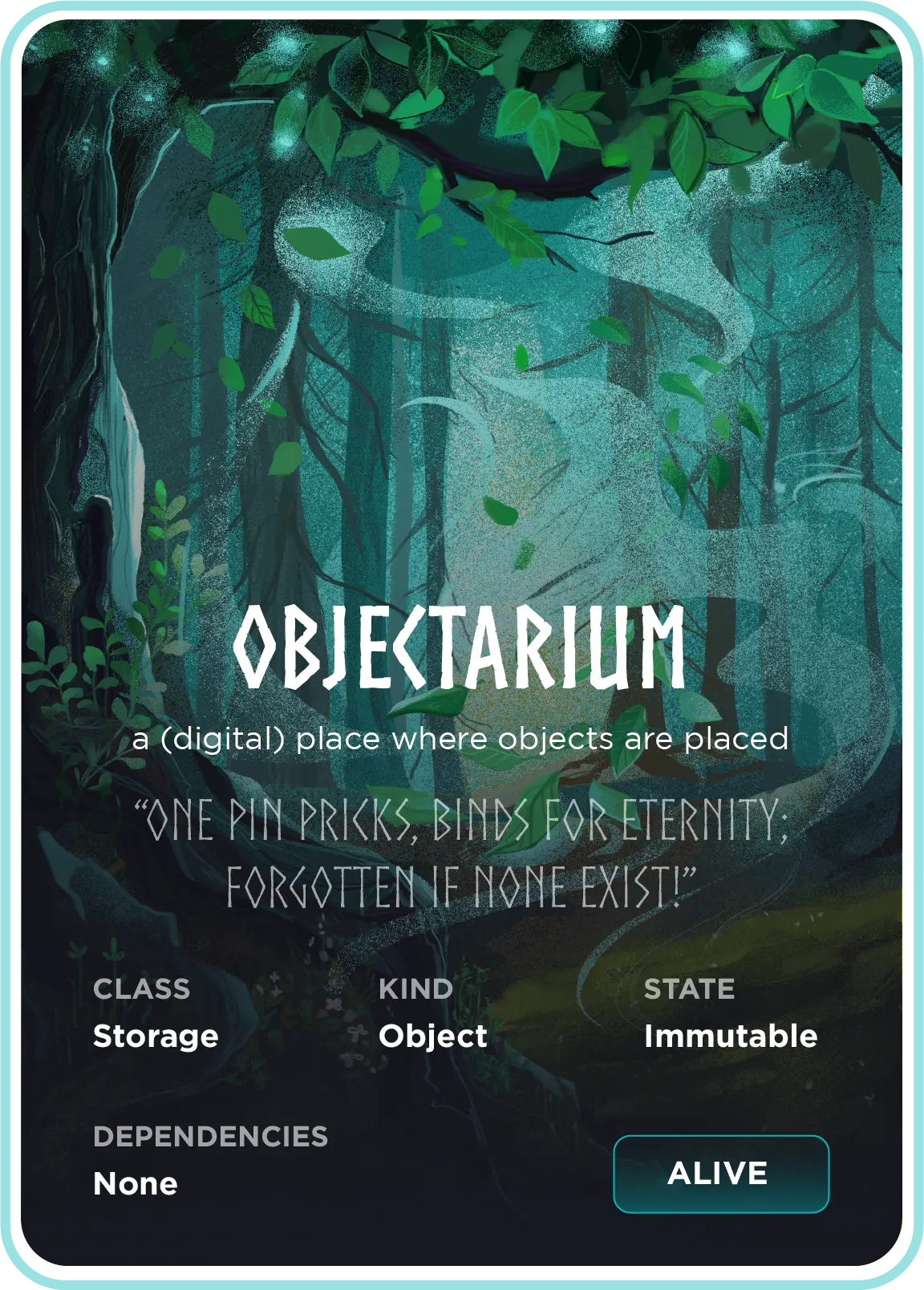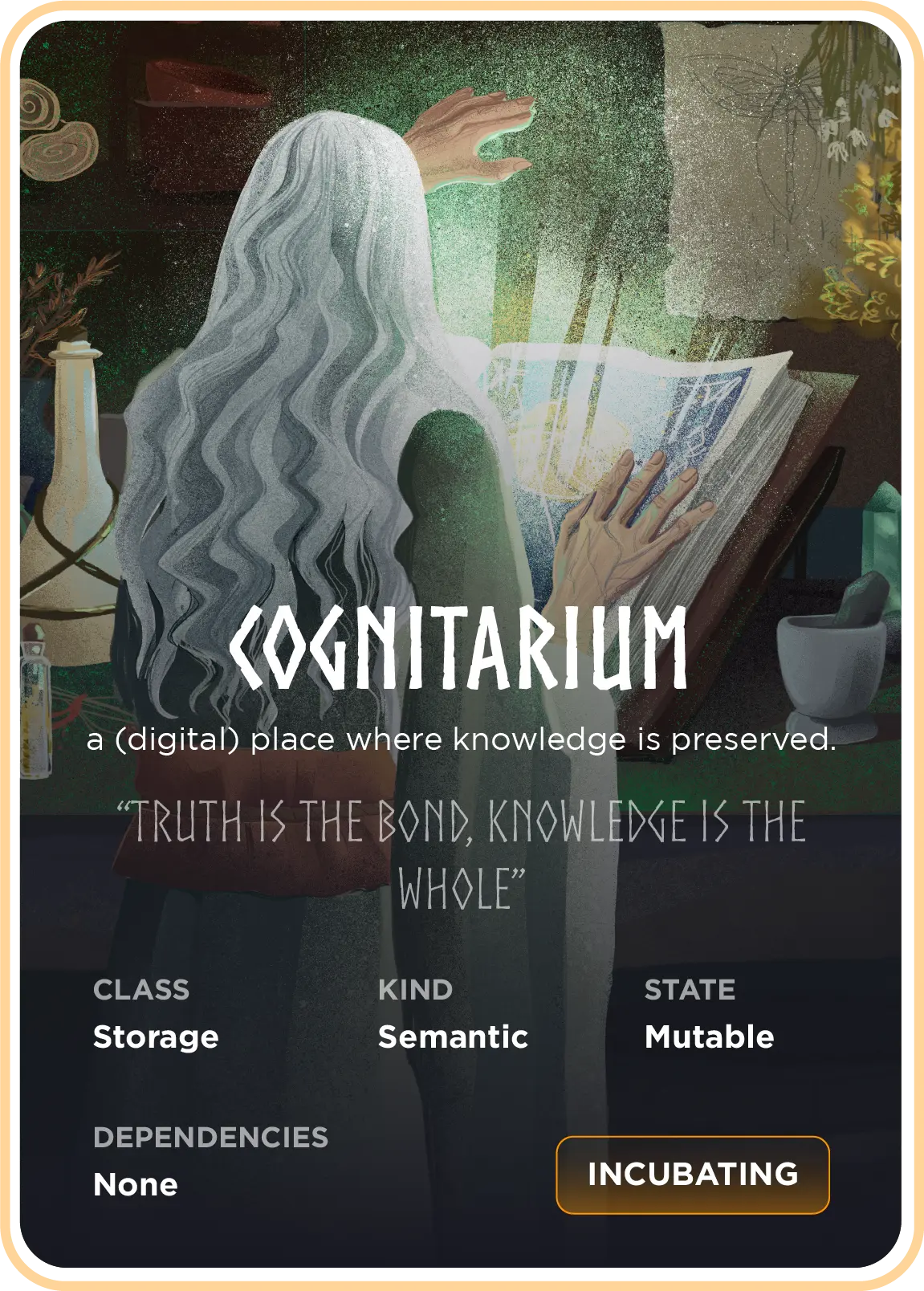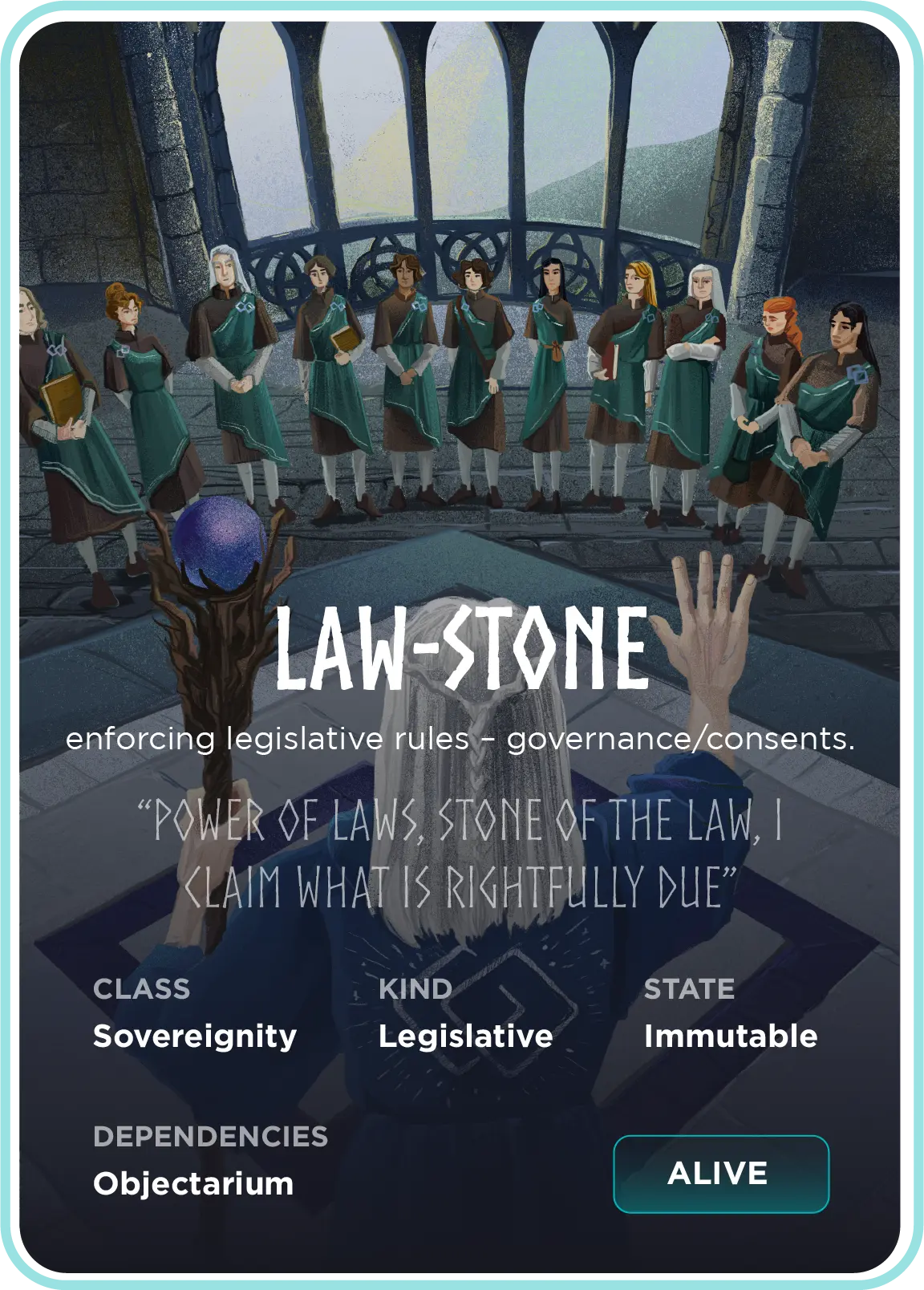CosmWasm contracts for the OKP4 network.
This repository hosts Smart Contracts that are deployed on the OKP4 network. But they are compatible with any Cosmos blockchains that uses the CosmWasm framework.
| contract | kind | state | description | status |
|---|---|---|---|---|

objectarium |
object | immutable |
Persists unstructured data on-chain. | ✅ |

cognitarium |
semantic | mutable |
Persists semantic data on-chain. | 🚧 |
| contract | state | description | status |
|---|---|---|---|

law‑stone |
immutable |
Interprets governances expressed as Prolog program. | ✅ |
The project is structured around a set of Rust workspaces, each defining a smart contract.
.
├── contracts
│ └── <contract>
│ ├── Cargo.toml
│ ├── examples
│ ├── schema
│ └── src
├── packages
│ └── <package>
│ ├── Cargo.toml
│ ├── examples
│ └── src
└─── Cargo.toml
Be sure you have the following tools installed:
- Rust v1.69 or higher
- cargo-make v0.36.3 or higher
- Docker
- jq v1.6 or higher
- npx v8.19.2 or higher
And the following common GNU Core utilities:
To compile the Smart Contracts to Wasm, just invoke the wasm goal of the makefile:
cargo make wasmThis will install the rust Wasm toolchain, if not already done, and start the process for compiling the Smart Contracts to Wasm.
The Smart Contracts are under unit testing. The tests can be launched with the following invocation:
cargo make test-coverageThe project comes with a set of convenient tasks to manage the Smart Contracts and the blockchain. To see the list of available tasks, run the following command:
cargo make --list-all-steps | grep chain | sort | sed -r 's/chain(-?[a-zA-Z\-]*)/- `chain\1`/'The list of available tasks for managing the chain is as follows:
chain- Run the okp4d CLI using the chain's home directory under a Docker container.chain-add-keys- Add a set of predefined keys (recovered from the seed phrases) to the chain.chain-clean- Clean the chain data (⚠️ definitively)chain-deploy-contract- Deploy a specific contract to the chain. The contract must be compiled and the wasm file must be present in the artifacts directory (under target/wasm32-unknown-unknown/...).chain-deploy-contracts- Deploy all the available contracts to the chain (under target/wasm32-unknown-unknown/...).chain-execute-contract- Execute a command on a specific contract to the chain. The contract must be already deployed and instantiated.chain-init-folder- Initialize deploy folder to make sure scripts have the right permission (needed for linux)chain-initialize- Initialize the chain with a validator's key and a set of predefined keys.⚠️ The home directory is cleaned before.chain-inspect-contract- Inspect a specific contract deployed to the chain.chain-instantiate-contract- Instantiate a specific contract to the chain. The contract must be already deployed.chain-list-contracts- List all the contracts deployed to the chain.chain-logs- Show the chain's container logs.chain-query-contract- Query a specific contract to the chain. The contract must be already deployed and instantiated.chain-start- Run the full node okp4d application using the chain's home directory under a Docker container.chain-stop- Stop the chain's container.
To initialize the chain, just run:
cargo make chain-initializeThis will initialize the chain's home directory and create a validator's key and a set of predefined keys (recovered from the seed phrases).
To start the chain, just run:
cargo make chain-startThis will start the chain's container and run the full node wasmd application.
You can check the chain's logs with:
cargo make chain-logsTo deploy the Smart Contracts, just run:
cargo make chain-deploy-contractsThis will deploy all the available contracts to the chain. For this, the contracts must be compiled and the wasm files must be present in the artifacts directory. See the Build section for more details.
Now, you can interact with the deployed smart contracts and test them out.
You can freely interact with the local chain by executing the following CLI command. This will execute the okp4d
binary
inside a Docker container with the --home argument pointing to the chain's home directory and using the same network
as
the chain's container. The arguments passed to the command will be directly passed to the okp4d binary.
cargo make chain <command>For example, to check the status of the chain, just run:
cargo make chain statusTo stop the chain, just run:
cargo make chain-stopTo clean the chain, just run:
cargo make chain-cleanWhen developing a new Smart Contract, you can use the scaffolding to generate the Smart Contract's code.
Be sure you have the following tools installed:
- ffizer v2.10.3 or higher
To generate the scaffolding, just run:
cargo make scaffold-smart-contractThen, follow the instructions.
The documentation of the smart contracts must be committed to the repository. The documentation is generated from the smart contracts' schema.
To generate the documentation follow the steps below.
Be sure you have the following tools installed:
- Yarn v1.22.10 or higher
Then, install the dependencies:
yarn global add @adobe/jsonschema2md@7.1.5To generate the documentation, just run:
cargo make schema
cargo make docs-generateYou'll find the generated documentation under the docs folder.
When developing a new contract, you should commit the generated documentation to the repository. For this, gerenate the documentation and commit the changes:
git commit -am "docs: update generated documentation"So you want to contribute? Great! ❤️ We appreciate any help you're willing to give. Don't hesitate to open issues and/or submit pull requests.
Please check out OKP4 health files:







